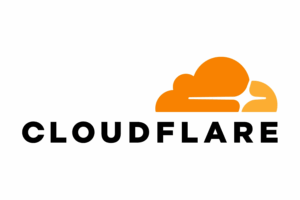The Internet's New Normal: How AI Crawlers Are Changing the Future of Content
Hi, I'm Tak@. As a system integrator, I've been involved in various system development projects, and in my spare time, I enjoy developing web services using generative AI.
The relentless evolution of AI is poised to significantly change how we use internet content. In particular, the existence of "AI crawlers," which automatically collect information from websites, is a topic closely related to our businesses and daily lives.
In this article, I'll explain Cloudflare's new AI crawler regulations, why this change is important, and how it works, all in easy-to-understand terms for beginners.
Let's explore together how your website and content should be handled in this new era.
AI Crawlers: The New "Permission-Based" Normal
Cloudflare has announced a new policy requiring "permission" for AI crawlers to access content. This fundamentally changes the previous situation where content could be freely scraped.
Historically, the internet has operated on a "simple exchange": search engines indexed content, users accessed the original sites as a result, and ad revenue was generated.
However, AI crawlers collect content and directly generate answers, eliminating the need for users to access the original source. This has led to a loss of revenue for content creators and the joy of knowing their content is being read.
Matthew Prince, Cloudflare's co-founder and CEO, stated: "For the Internet to survive the age of AI, we need to give publishers the appropriate controls and build new economic models that work for creators, consumers, future AI founders, and the future of the Web itself."
It's clear that the previous model of free content usage is no longer functional.
This new permission-based model is a crucial step towards a more sustainable future for both content creators and AI innovators.
Website owners will be able to decide whether to allow AI crawlers access to their content, and how AI companies can use that content.
AI companies will also be required to clearly state the purpose of their crawlers (e.g., training, inference, search).
As a system integrator, I'm involved in designing and building various systems daily. I'm particularly interested in Cloudflare's move because it doesn't just focus on the technical aspects; it zeroes in on the fundamental value of content and information.
I believe this rebuilding of the business model will shape the future of the web.
Do you feel your content is properly valued and compensated?
The Significance of Protecting Content Creators' Rights
This permission-based model strongly protects the rights of creators who produce original content.
Reliable, high-quality content is the foundation that supports the internet's diversity and vitality.
If unlimited scraping continues unchecked, the incentive to produce quality journalism and creative works will be lost, risking harm to society as a whole.
By allowing creators to limit content access to AI partners committed to fair dealings, they can reclaim an environment where their efforts are rewarded.
Roger Lynch, CEO of major publisher Condé Nast, commented, "Cloudflare's thinking about blocking AI crawlers is a big change for publishers and sets a new standard for respecting content online."
Neil Vogel, CEO of Dotdash Meredith, also emphasized, "To use content, AI platforms must pay fair compensation to publishers and creators," and expressed excitement about using Cloudflare's tools to protect content.
Renn Turiano of Gannett Media, the largest publisher in the US, also spoke about the importance of stopping unauthorized scraping.
This move will lead to a re-evaluation of content's value and create an environment where creators can confidently continue to provide high-quality information.
Cloudflare's Technology Powers the New System
Cloudflare is making this new AI crawler regulation a reality through its global network and advanced technology.
Cloudflare manages and protects approximately 20% of the world's web traffic, processing trillions of requests daily. This enables them to provide the world's most advanced bot management solution, accurately distinguishing between humans and AI crawlers.
In fact, a one-click option to block AI crawlers was introduced in September 2024, and over a million users have already opted in.
For even more advanced control, Cloudflare now asks new domains using its services by default whether to allow AI crawler access.
This allows website owners to control AI crawler access without manual configuration.
Cloudflare is also developing new ways for AI bots to authenticate themselves and for websites to identify those bots, aiming for greater transparency.
Cloudflare's strength lies in its integrated connectivity cloud, offering diverse services like CDN (Content Delivery Network), Workers (building and deploying serverless applications), and R2 (affordable object storage).
For example, Cloudflare Workers achieve "0ms Cold Starts" by triggering the Worker Runtime during the TLS handshake, before the request even reaches Cloudflare. This demonstrates their underlying technical capability in identifying and controlling AI crawlers.
Such technological backing enables the implementation of large-scale regulations.
I personally noticed Cloudflare's cost-effectiveness after reading an article about migrating from AWS S3 to Cloudflare R2, which resulted in approximately 50% cost savings. From an SIer's perspective, I'm confident that this AI regulation would have been difficult to implement without their technical prowess and broad service offerings.
Does your website's "gatekeeper" distinguish between humans and AI crawlers?
A New Coexistence Between AI Businesses and Content
This new permission-based model opens a new path for AI companies and content creators to mutually value each other and coexist.
AI companies, who previously used content without restrictions, will now need to build cooperative relationships with content providers. By clearly defining content usage purposes and establishing fair transaction terms, creators can control how their content is used, and AI companies can secure reliable data sources.
Some AI companies, like ProRata AI, believe in protecting human creativity and that creators should receive fair compensation in the age of AI.
Ricky Arai-Lopez, Head of Product at Quora, stated, "Publishers are essential to the future of the internet and the growth of AI. At Quora, we believe these two industries can thrive together," and supports initiatives like "pay-per-crawl."
Boyd Muir, COO of Universal Music Group, also expressed his support for addressing unauthorized scraping of creative IP and welcomed the new permission system. This indicates that Cloudflare's advocated "permission-based approach" is gaining traction across the industry.
Such movements will contribute to building a healthier digital ecosystem where the value of content is properly recognized, without hindering AI's progress.
Ever since I started web service development as a hobby over 15 years ago, I've been fascinated by the possibilities of API mashups. With the advent of generative AI, those possibilities have expanded even further.
I anticipate that this AI crawler regulation will further diversify the application of AI technology and create new business opportunities.
How do you want to balance AI development and content protection?
Analysis
I believe Cloudflare's AI crawler regulation is not merely a technical change, but a significant attempt to redefine the fundamental value exchange of the internet.
It could be seen as a challenge to how the internet, which has promoted the democratization of information, maintains its balance in the face of a new, immense power: AI.
This policy might be perceived by some as restricting AI's free data collection.
However, unchecked scraping would lead to a loss of motivation to create high-quality content, ultimately reducing the quality of data that AI can learn from—a contradiction. Cloudflare addresses this dilemma by setting a clear boundary through "permission," aiming to create a "good state" for both parties.
As a system integrator, I've consistently adapted to changing technological environments. Cloudflare's move highlights the increasing importance of transparency and consensus in data usage as companies pursue digitalization.
This will be an indispensable perspective for both AI-utilizing companies and content-providing companies in formulating future strategies.
Furthermore, Cloudflare's technical capabilities are evident in their product suite, including CDN, Workers, and R2. Their wide range of services gives them the comprehensive power to tackle complex challenges like this AI crawler regulation.
This change will be a significant step towards a more robust and sustainable future for the internet. We need to embrace this change positively and consider how to integrate it into our digital strategies.
Conclusion
The rapid advancement of AI is bringing immeasurable changes to our lives and businesses, but it also creates new challenges.
Cloudflare's AI crawler regulation is an important initiative aimed at a balanced future, one that re-evaluates content value, ensures creators are compensated, and simultaneously promotes AI's progress.
This "permission-based" new normal offers website operators an opportunity to regain control over their content and encourages AI companies to adopt more transparent data usage. As a system integrator, I believe this change will have a significant impact on the future digital ecosystem.
We must understand this new trend and seriously consider how to protect the value of our content and coexist with AI on our websites and in our businesses.



